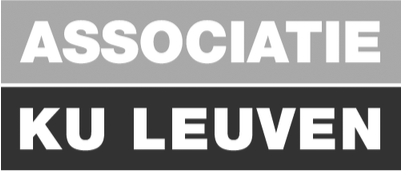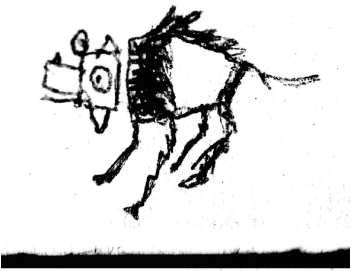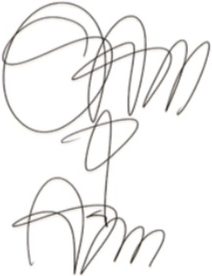Cabourg may not be a fictional seaside resort in Normandy, but its fairy-tale-like atmosphere is captivating. Its main promenade, adorned with grand manors that have withstood the test of time since the enchanting Belle Époque, gracefully parallels the shores of its golden beaches. Monet, Debussy and Proust vacationed here. In the present era, a new tide has washed upon these shores, ushering in a wave of independent music aficionados who have found solace within this sanctuary. Their pilgrimage is prompted by the allure of the festival “Cabourg, Mon Amour“, where indie melodies intertwine in perfect harmony.

From right to left: Alexandre Mielczarek, Cassandra Hettinger, Marina Kazakova and Sara Maino. Photograph: Sara Maino
In the tranquil ambiance of the festival’s chillout zone, a charming open-air beach bungalow becomes the intimate setting for an encounter with the dreampop duo, “Charlotte Fever.” Cassandra Hettinger and Alexandre Mielczarek, the artistic souls behind this musical entity, join me as we indulge in the simple pleasure of conversation. Our talk delves into the nature of their music, unraveling the essence that breathes life into their melodic creations.
“At the age of five, my journey into the realm of music commenced with the keys of a piano. It was Mozart and Beethoven who first graced my ears, their compositions leaving an indelible imprint on my young mind,” reminisces Alexandre. The question arose, probing the roots of the duo’s musical inspiration, and whether the echoes of the past continue to shape their artistic expression.
“My piano lessons spanned from the age of five to ten,” Alexandre continues, reflecting on a pivotal moment in his musical path. “However, as my friends immersed themselves in the world of video games, I found myself swayed by their allure, and my classical piano training took an unexpected detour. It wasn’t until high school, several years later, that the call of music resurfaced within me, this time through the strings of a guitar.”

Festival “Cabourg, Mon Amour” 2023. Photograph: Sara Maino
With the guitar in hand, Alexandre embarked on a new chapter, composing melodies that would become the foundation of his creative endeavours. “The journey continued as I ventured into the realm of music production, harnessing the powers of software to weave harmonies. The knowledge and appreciation I gained from classical composers endowed me with the ability to create melodies, for in my eyes, harmonies and melodies stand as the quintessential pillars of music – a quality not always found in many contemporary genres.”
Thus, Alexandre’s musical odyssey, spanning the symphonic keys of the piano to the enchanting strings of the guitar, forged a unique path where the echoes of the past resonate, guiding his creative expression to this very day.
Contrary to Alexandre’s musical upbringing, Cassandra’s journey took a different trajectory, shaped by the vibrant sounds of pop music rather than the classical realm. She fondly recalls the early days when she took the stage at family gatherings, sharing her voice through do-it-yourself performances.

Charlotte Fever at “Cabourg, Mon Amour” 2023. Photograph: Sara Maino
As time unfolded, Cassandra’s musical repertoire expanded, and at the age of sixteen, she welcomed a guitar, adding another dimension to her artistic expression. Her passion for singing and playing music blossomed, leading her to embark on a new chapter in 2016 when she enrolled in a music school in Paris. Here, she embraced the art of singing with the steadfast companion of her guitar.
The Charlotte Fever’s oeuvre is thick with different styles, ideas and allusions, yet their music undeniably carries the unmistakable essence of Frenchness. As a result, it comes as no surprise that listeners of the duo often draw comparisons between their music and the finest examples of French chanson, such as Serge Gainsbourg and Camille Bazbaz, infused with elements of electropop reminiscent of Daft Punk, Justice, or Air.
“The distinct Frenchness stems from a fusion of disco and house elements, rhythmic beats and basslines, the groove that is the very DNA of contemporary French electronic music,” explains Alexandre. Cassandra affirms their diverse range of influences and openness to discover new artists and inspirations, constantly digging for sounds. However, they remain steadfast in creating music they genuinely love, without compromising their artistic vision for market demands.

Charlotte Fever at “Cabourg, Mon Amour” 2023. Photograph: Sara Maino
In the realm of la chanson française, where lyrics often take precedence over melodies, the duo has embraced a defining characteristic: using the French language as an instrument. For them, lyrics hold great importance in their songwriting process. “We begin by exploring the mood through synths, searching for our comfortable space. Once we find it, the words start pouring,” says Alexandre, shedding light on their creative approach.
Deep within the heart of one of Paris’ arrondissements lies their little studio, where they sculpt their songs. With a knowing gesture, Cassandra directs our attention to their humble sanctuary, emphasising the significance it holds for them. “That’s where we spend countless hours dreaming,” she remarks. “Observing our workspace, one might find it unremarkable. Yet, for us, it holds the key to a realm of freedom and inspiration.”
Charlotte Fever is an artist duo whose use of soundscapes is transparent. “In our songs, we’ve explored the sounds of the sea, seagulls, and even bicycles, adding a cinematic touch to our music,” says Cassandra. “Cinema holds great importance for us, nurturing our imagination. Our songs often serve as a response to the world of film. In particular, we are fond of Jean Luc Godard. His films are like paintings, and we are no exception in finding inspiration from his creations,” adds Alexandre.
As we delve into the melodies of Charlotte Fever, it becomes evident that the musicians possess a remarkable ability to transform a mere memory into a cinematic tour de force.
Touché par un éclair, au bord de la mer (J’écris ton nom, dans le sable)
Pourquoi ce long silence? Viens saisir ta chance
(Victime de cet amour, je pense à toi)
Envie passionnée (L’amour éphémère) de baisers salés (Un été solaire)
Nos mains serrées, allongés sur le sable
Plus rien n’a d’importance, c’est la fin des vacances
Est-ce que tu penseras à moi un peu?
T’étais cool avec le vent dans les cheveux
Je nous imagine souvent toi et moi sur fond bleu
Est-ce que tu penseras à moi un peu?
Touched by lightning, by the sea (I write your name, in the sand)
Why this long silence? Come and take your chance
(Victim of this love, I’m thinking of you)
Passionate desire (Ephemeral love) for salty kisses (A solar summer)
Our clenched hands, lying on the sand
Nothing matters anymore, it’s is the end of the holidays
Will you think of me for a bit?
You were cool with the wind in your hair
I often imagine you and me on a blue background
Will you think of me a little?
We interview Charlotte Fever shortly after the violent protests in Paris that occurred following the police killing of a 17-year-old who failed to stop when ordered to by traffic police. The conversation naturally steers towards the musicians’ political stance, considering the perspective of music as a social platform intertwined with the lives and actions of people. Addressing this, Alexandre clarifies, “While our lyrics remain apolitical, we do carry within us the values of equality. In a sense, our duo symbolises equality, not explicitly voicing political matters but expressing certain notions through our very existence.”

“Cabourg, Mon Amour” 2023. Photograph: Sara Maino
Beneath the outer shell of a wild-child party girl, there lies an artist who remains true to her own research. Cassandra highlights the still existing societal conditioning in France, where women are expected to be singers rather than instrumentalists. “From a young age, girls are shielded and discouraged from taking risks, pushed to perform with a microphone, prioritise looks, and put on a show”, she says. “I consider myself fortunate to have met Aleks, as he has provided me with the opportunity to express myself not only as a vocalist but also as a musician.”
Cassandra concludes, stating, “While our songs don’t explicitly address political matters, we do openly discuss topics such as sex and masturbation. In certain countries, where such aspects of sexuality are uncharted and forbidden, they might be perceived as politically charged.”
This serves as a prime example of the talent for injecting real human quirks and eccentricities into the gentlest of lovelorn ballads, and sneaking a bug into the collective subconscious has only seen the Charlotte Fever’s star ascend.
By Marina Kazakova









